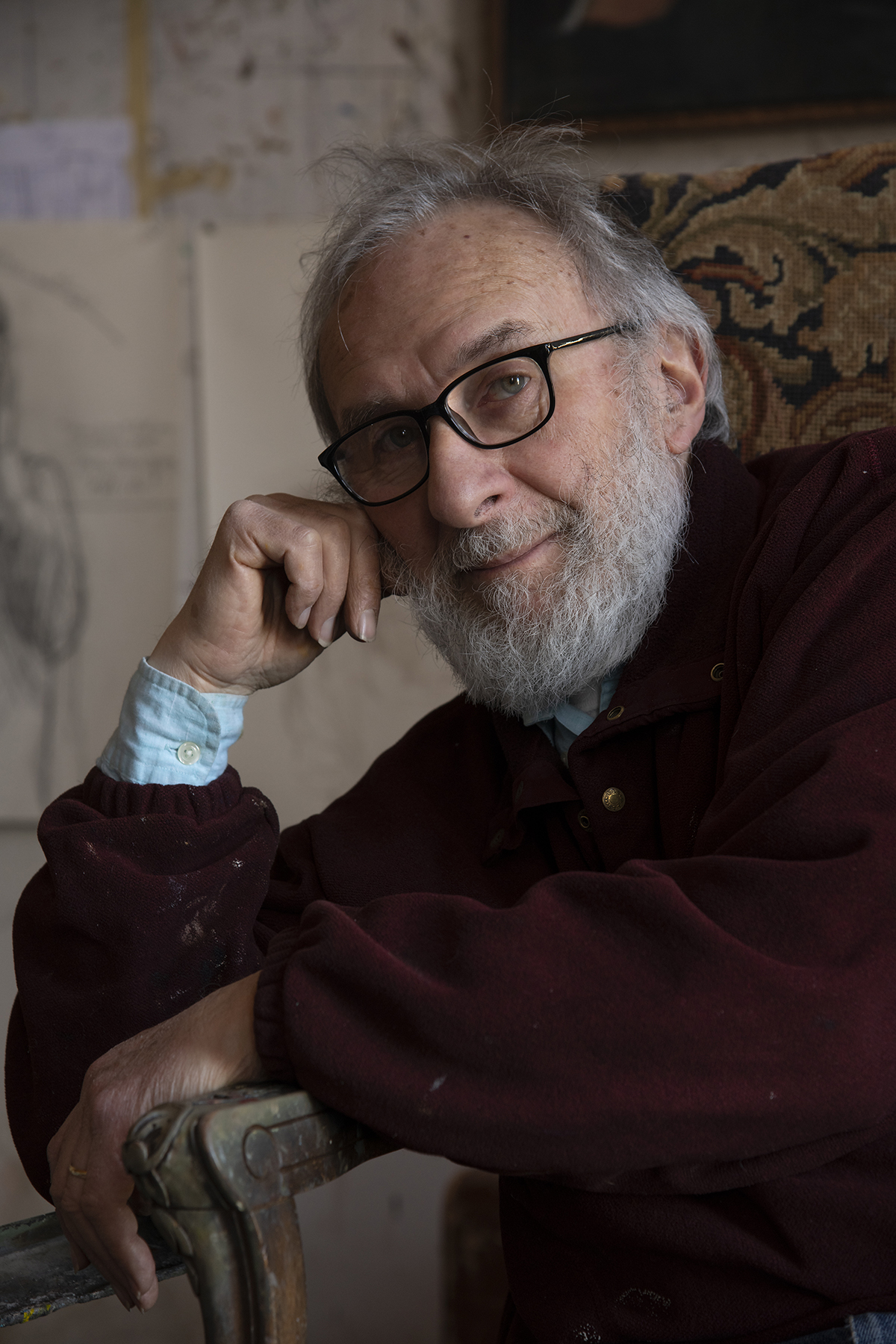Artist Talk with Jerome Witkin
January 8, 2020 - 7:00 PM to 9:00 PM
 Jerome Witkin (born September 13, 1939) is an American figurative artist whose paintings deal with political, social and cultural themes, along with serious portraiture that melds the sitter’s social position with a speaking likeness that reveals inner character. Witkin has been succinctly characterized as “a virtuoso figurative painter whose work mixes elements of the old masters, social realism and Abstract Expressionism …”
Jerome Witkin (born September 13, 1939) is an American figurative artist whose paintings deal with political, social and cultural themes, along with serious portraiture that melds the sitter’s social position with a speaking likeness that reveals inner character. Witkin has been succinctly characterized as “a virtuoso figurative painter whose work mixes elements of the old masters, social realism and Abstract Expressionism …”
“In a fall 1992 lecture at Syracuse University [Witkin] asked, ‘Is it possible to base art on moral responsibility? Yes. I’m a painter of conscience, one who hopes art students in the year 2040 will see my work as visual stories—stories known only to my time and pictured through the influence of the sequences of film: film-time. I will present to them a moral theater, a theater of the face and body. I think those art students of the future will find post-World War II painting lacking and self-indulgent; a weak art of careerism and sophistry. . . They may well ask the question, ‘Where were painters and sculptors when there was so much upheaval, when the Holocaust did exist, when our cities were strewn with bodies of young black men and the homeless?’ They may ask, ‘Why did painting look away from life as it was happening?’ “— Chayat on Witkin (Excerpted with permission from Life Lessons, The Art of Jerome Witkin, copyright 1994 by Sherry Chayat).
Witkin was born in Brooklyn, New York, the twin brother of photographer Joel Peter Witkin. Recognized as a prodigious talent, at fourteen he entered The High School of Music & Art in New York, and subsequently studied at the Skowhegan School of Painting and Sculpture, Cooper Union, the Berlin Academy, and the University of Pennsylvania. A Pulitzer Traveling Fellowship enabled him to travel, study and further develop in Europe. After his return to the United States, Witkin received a Guggenheim Fellowship, began exhibiting at galleries in New York and joined the faculty of the Maryland Institute College of Art. He later taught at the Manchester College of Art in England, Moore College of Art, and in 1971 became a professor of art at Syracuse University.
While his paintings reference the work of the old masters, social realism, and Abstract expressionism, Witkin, in a self-deprecating manner, refers to himself as a “cornball humanist”. In a fuller explanation of his motivation, Witkin has emphasized, “If this society continues to the next two thousand years, people will be looking at the twentieth century and saying, ‘What did artists do about the strange goings-on?'”
Jerome Witkin – photo (2018) © Eliyahu Lotzar
Witkin’s work is included in the permanent collections of the Metropolitan Museum of Art in NYC, the Uffizi in Florence, Italy, the Cleveland Museum of Art, and the Hirshhorn Museum in Washington, D.C.
